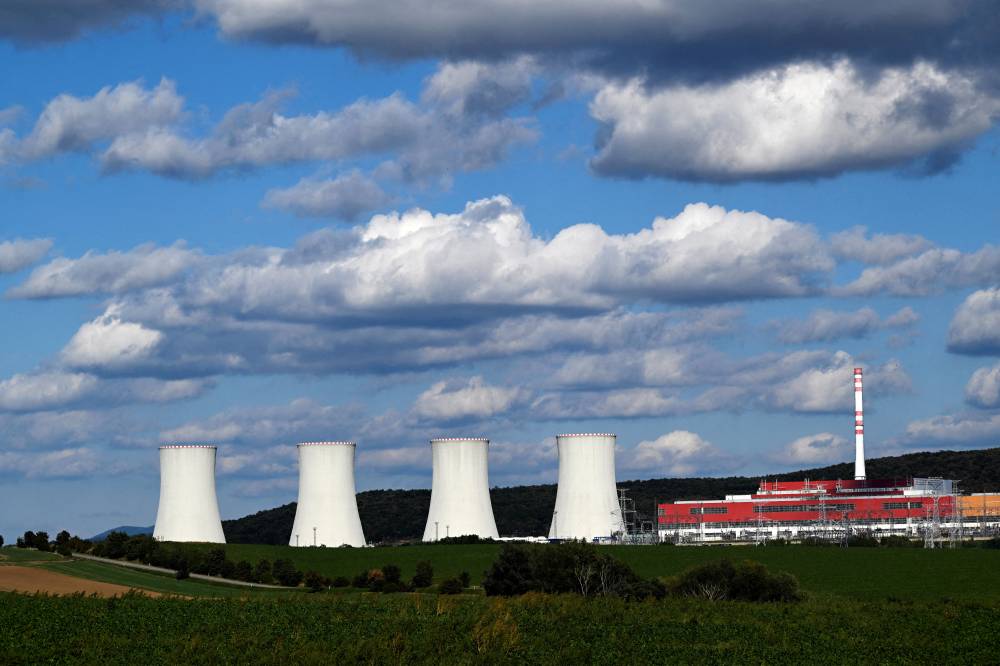Nations rally behind renewables

DUBAI—More than 110 nations pledged to triple the world’s renewable energy within seven years at UN climate talks on Saturday as the United States pushed to slash methane emissions and boost nuclear capacity.
With smoggy skies in Dubai highlighting the challenges facing the world, leaders at the COP28 meet threw their support behind voluntary pledges aimed at ramping up alternatives to fossil fuels.
A massive deployment of solar, wind, hydroelectric and other renewables is crucial to efforts to displace demand for planet-heating coal, oil and gas and achieve net-zero carbon emissions by 2050.
The nearly 200 nations negotiating a COP28 climate deal face tougher talks over the next two weeks on the fate of fossil fuels.
More than half signed up to a commitment to trippling global renewable energy capacity and doubling energy efficiency by 2030, the COP28’s Emirati presidency said.
But major oil producers including Russia, Saudi Arabia and Iran and top consumer China were not on the list.
“I do need more, and I’m kindly requesting all parties to come on board as soon as possible please,” COP28 President Sultan Al Jaber told delegates.
“This can and will help transition the world away from unabated coal,” said Jaber, who also heads the UAE’s national oil company and a renewable energy firm.
Dirty phaseout
Clean power advocates welcomed the commitment but said it must be accompanied by the phase out of dirtier forms of energy.
“The future will be powered by solar and wind, but it won’t happen fast enough unless governments regulate fossil fuels out of the way,” said Kaisa Kosonen of Greenpeace.
Jaber also announced a pledge by oil and gas companies representing 40 percent of global production, including his UAE firm ADNOC (Abu Dhabi National Oil Company) and Saudi giant Aramco, to decarbonize their operations by 2050.
But the pledges do not include emissions when the fuels are used by their customers, and were criticized for repackaging previous, nonbinding commitments.
“This charter is proof that voluntary commitments from the oil and gas industry will never foster the level of ambition necessary to tackle the climate crisis,” said Melanie Robinson of the World Resources Institute.
The US Environmental Protection Agency announced earlier that it would tighten curbs on methane emissions from its oil and gas industry.
The new standards would phase in the elimination of routine flaring of natural gas produced by oil wells, and require comprehensive monitoring of methane leaks from wells and compression stations.
Methane summitThe announcement came ahead of an expected methane summit led by the world’s biggest greenhouse gas emitters—the United States and China—along with the United Arab Emirates at COP28.
China agreed for the first time to include all greenhouse gases in its next national climate pledge for 2035 in an agreement with the United States last month.
Methane is responsible for about one-third of the warming from greenhouse gases occurring today, second only to fossil fuels.
Agriculture is responsible for a quarter of methane emissions, with most of it produced during digestion by livestock.
The energy sector is the second-largest source of human-caused methane emissions.
Methane “is the most destructive gas,” US climate envoy John Kerry said.
While COP28 rallied behind renewables, the United States led a call by more than 20 nations for the world to triple nuclear energy capacity by 2050.
In a declaration, countries ranging from Britain to Ghana, Japan and several European nations said nuclear power played a “key role” in the goal of achieving carbon neutrality by mid-century.
The use of nuclear power as a cleaner alternative to fossil fuels is highly controversial, with many environmental groups warning about safety risks and the disposal of nuclear waste. —AFP
AFP is one of the world's three major news agencies, and the only European one. Its mission is to provide rapid, comprehensive, impartial and verified coverage of the news and issues that shape our daily lives.
















